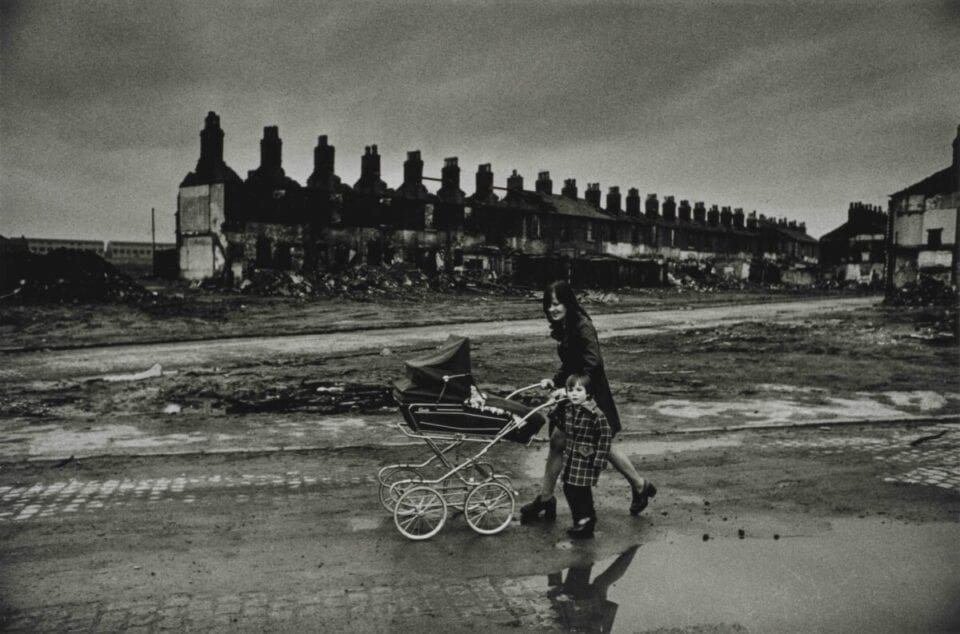Don McCullin’s (b. 1935) childhood years were tumultuous. He was born in St Pancras and grew up in Finsbury Park, before being evacuated to Somerset during the Blitz. Following the death of his father, he left school at the age of 15 – without qualifications – for a catering job on the railways, before being called up for National Service with the RAF in 1953. In the years that followed, McCullin would become one of Britain’s greatest living photographers, with a monumental portfolio that documents humanity in a range of public and private environments – as well as changing landscapes.
He is, perhaps, best recognised for war photography – images of conflict taken at great personal risk – in the likes of Vietnam, Northern Ireland, Lebanon and Republic of Biafra. McCullin’s oeuvre also includes depictions of unemployment and poverty across north London and its suburbs, capturing decaying buildings and families walking in the bitter cold. Then there’s sweeping natural landscapes depicted through dramatic monochrome – hills rolling into the distance – as well as travel and photojournalism assignments for the likes of The Observer and Sunday Times Magazine.
This autumn, Tate Liverpool hosted a major retrospective of McCullin’s work (closing 5 November due to COVID restrictions) – originally shown at Tate Britain in spring 2019. It presented more than 250 photographs that grip the viewer and hold their gaze. Tamar Hemmes, Curator, expands on the show’s second iteration: “We felt that the work would have further resonance in Liverpool, especially now – when people’s opportunities to travel are limited. Whilst the exhibition covers the past 60 years, the issues of conflict, poverty and inequality are entirely relevant today.”
For this occasion, Tate displayed photographs of Liverpool that have never before been seen, printed in McCullin’s dark room. The artist first came to the city at 15 years old, when he was working on a steam train that travelled up from London three times a week. He returned as a photojournalist in the 1960s, 1970s and 1980s, documenting new developments in the community, including the controversial slum clearance of Toxteth. Entire swathes of the city were moved out of poor living conditions. Whilst there’s moments of light amongst these hard-hitting images, Hemmes notes that “there’s a consistent sense of darkness reminiscent of the battlefield.”
The exhibition was presented largely in chronological order, starting with works from Berlin as the wall construction began in 1961, through to McCullin’s final assignment in Iraq in 1991. Southern Frontiers documented ruined buildings on the southern borders of the Roman Empire, in Lebanon, Morocco and Syria amongst others. After the Islamic State destroyed many ancient sites in Syria, McCullin went back to photograph the temples at Palmyra for a second time. It is a vital show that will be sure to stay in viewers’ minds long after leaving, having considered what it means to be human.
Don McCullin is at Tate Liverpool. The gallery will be closing from 5 November.
Read the exhibition guide here.
Image credit: Don McCullin Liverpool © Don McCullin




